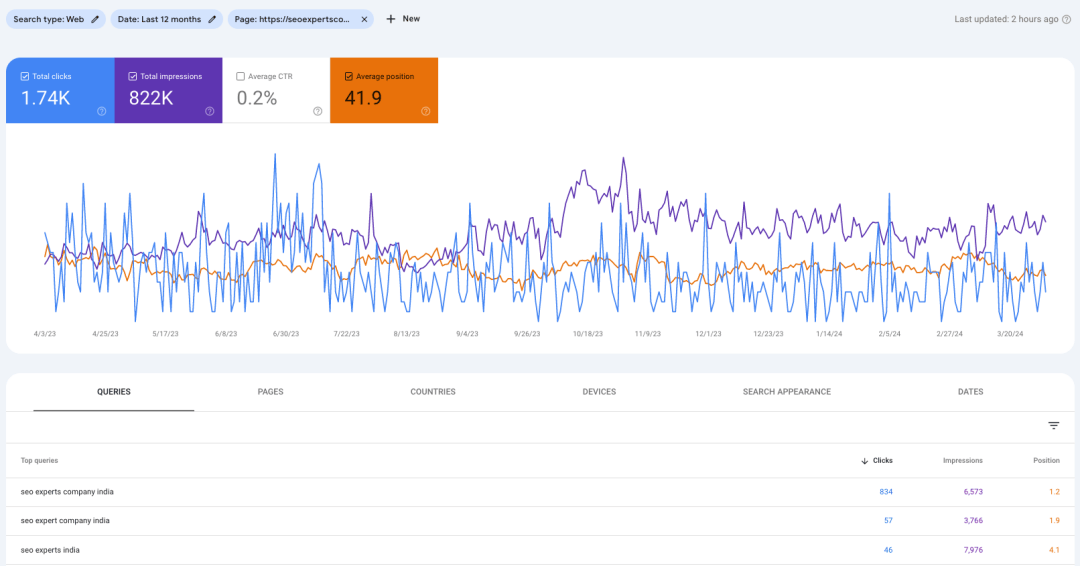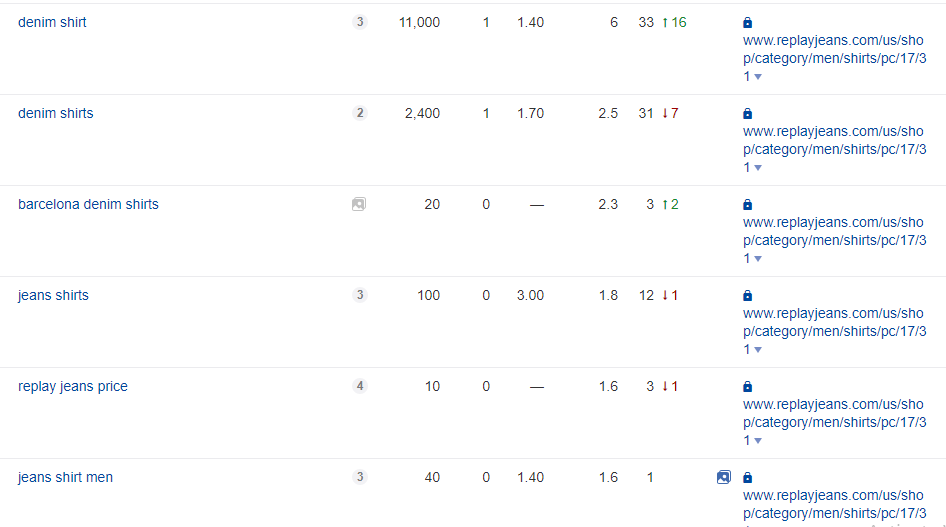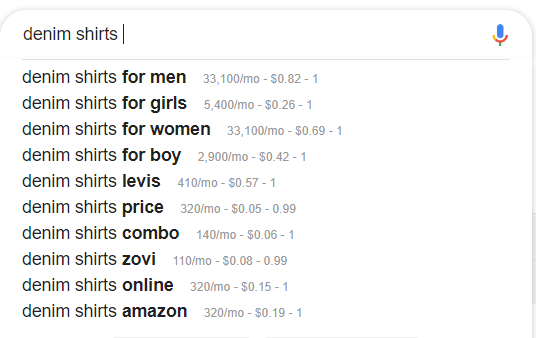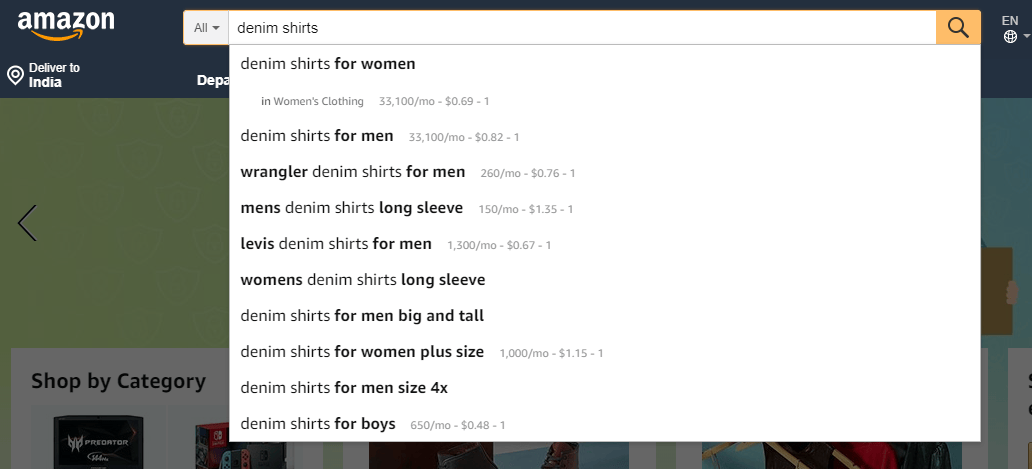Ecommerce keyword research is the process of identifying specific words and phrases that customers use while searching for your products or services online. By strategically including these keywords in your product pages, product descriptions, meta descriptions, URLs, etc., you can attract potential customers directly to your online store.
Having navigated the world of eCommerce firsthand, we understand the struggle of getting your products noticed in this highly competitive digital marketplace. That’s why we have compiled a handy guide on finding the right keywords for your eCommerce business.
So, let’s dive into the article to discover the keyword research strategies that’ll make your online store acquire more sales and increase revenue.
Why is E-commerce Keyword Research Important?
Besides attracting potential customers to your website, ecommerce keyword research offers several additional benefits:
1. Aids in Product Optimization
Effective keyword research helps optimize your product titles, descriptions, meta tags, and images to match the target audience’s search intent. For instance, if your store deals in footwear, keyword research can reveal whether your target audience prefers terms like “running shoes,” “sneakers,” or “gym shoes,” etc., enabling you to tailor your product pages accordingly.
2. Helps Understand Market Trends
Ecommerce keyword research helps you stay informed about the latest market trends by identifying popular search terms and phrases. In addition to boosting SEO, this understanding can guide your inventory decisions, promotional strategies and provide content creation ideas.
For example, if your online store deals in “hair care products” and you notice a rising trend in “paraben-free shampoo” or “sulfate-free shampoo,” you can prioritize adding such products to your inventory and highlight them in your marketing.
3. Improves Conversion Rates
Efficient keyword research helps target keywords that resonate with the search intent of potential customers. By inculcating relevant keywords in product descriptions, URLs, meta descriptions, etc., your ecommerce store can convert qualified leads into potential customers, ultimately leading to more sales.
Understanding Essential Elements of Ecommerce Keyword Research
If you are following the article, you now know what ecommerce keyword research is and why is it important. Now, let us dig a little deeper to understand some essential elements of keyword research.
Search Intent
As the term suggests, search intent is the primary reason behind a customer’s query when they type something into the search bar.
For example, while looking for a new pair of sneakers, you might type “sneakers for women” into Google or Safari. But what is your intention behind that search? Are you looking to buy a specific brand? Are you researching the latest trends? Do you want to compare different options? Or do you want to find the best deals?
Search intent is figuring out the “WHY” behind the user’s query. As an ecommerce store owner, understanding this search intent is essential as it enables you to tailor your content to match what your customers are looking for.
Search Volume
Search volume signifies the average monthly searches for a particular keyword or search phrase. Essentially, it reflects how many people are interested in a specific product or service.
You can use tools like SEMrush to check the search volume of different keywords. However, it’s equally important to consider the relevance and keyword difficulty. The strategy should be to aim for relevant keywords with decent search volume and lower keyword difficulty.
Keyword Difficulty
Keyword difficulty or keyword competition is an SEO metric that indicates how difficult it would be to rank for a particular keyword on Google. It is measured between 0 and 100, with 0 being the least difficult and 100 being the most difficult. Keyword difficulty can be measured using SEO tools such as Ahrefs or SEMrush.
Long Tail Keywords
Long tail keywords are phrases that are two or three words longer. For example, instead of “running shoes,” someone might search for “best running shoes for flat feet with arch support.” See the difference? The second one is much more specific and targeted.
Though long-tail keywords have a lower search volume, they often lead to higher conversion rates. As an ecommerce store owner, targeting long-tail keywords can help you attract customers closer to making a purchase decision.
Product Page Keywords and Blog Keywords
Product page keywords and blog keywords are two sides of the same coin–each serving a different purpose to boost your overall SEO strategy.
Product page keywords are words or phrases that describe what you’re selling. So, if you’re selling running shoes, your product page keywords might include terms like “Nike Air Force” or “women’s basketball shoes.” These keywords are important because they help potential customers find your products.
On the other hand, blog keywords focus on providing valuable information to your audience. For example, if you sell outdoor gear, your blog keywords might include terms like “best hiking trails near me” or “how to choose the right backpack.” The goal with blog keywords is to attract the target audience, build relationships, and establish your brand as a trusted authority in your industry.
Tested Strategies to Implement While Performing Ecommerce Keyword Research
Drawing from what we have learned through our experiences, we are sharing tested strategies that you must implement for effective eCommerce keyword research.
Analyze your Existing Keyword Rankings
Before digging any deeper, we advise you to evaluate your current keyword rankings and strategize improvements. Tools like Google Search Console and Ahrefs offer quick insights into your keyword performance. This analysis reveals which keywords drive the most traffic and conversions to your store and helps uncover the missed opportunities where your website could rank higher.

So, by evaluating your current rankings, you can determine which content needs to be created, what needs updating, and what can be left untouched. This understanding makes sure you focus on areas that will make the most impact on your SEO strategy.
Focus on the Search Intent
Search Intent is highly crucial in identifying and selecting the right target keywords. You can win the search engine rankings if you catch the search intent and get it right. Make sure to always consider whether the intent behind the search is informational, navigational, commercial, or transactional when choosing your keywords. You can use tools like SEMrush again to identify the search intent. This technique ensures that your content aligns with your target audience’s needs.
Perform Competitor Analysis
Understanding where you stand compared to your competitors is crucial in the world of ecommerce. That’s why competitor analysis is important. It basically helps you gain insights into how well your competitors are ranking for relevant keywords.
You can use SEO tools like Ahrefs to perform competitor analysis. Simply put your competitor’s product page URL into Ahrefs’ site explorer tool and click on the organic keywords tab in the left corner. It will quickly display a list of all the organic keywords your competitor ranks for, giving you valuable insights to analyze and strategize.
These are the few factors that you must analyze while conducting competitor analysis:
- Ranking Keywords: Evaluate particular keywords and phrases that your competitors are targeting and ranking for.
- Backlink Analysis: Check the number of backlinks on their website and verify the relevant sources they are coming from.
- Content gap analysis: Analyze the content gaps. Look closely at the topics they cover and the content they rank for. Strategize on how you can fill these gaps to outshine your competitors.
Extract Keywords from Customer Content
Analyze user-generated content such as product reviews, forum discussions, or social media conversations related to your products. Examine the language and phrases used by customers when discussing their experiences. These organic conversations can provide valuable keyword ideas and insights into customer preferences.
Update Your Keyword Strategy for the Festive Season
Keep an eye on the emerging festive shopping and changing seasonal trends. Look out for holidays or events that match your products and update your keyword strategy to match what people are searching for more often during these times. For example, keywords related to gifts, decorations, and holiday-themed products become more popular around Christmas. By inculcating this tactic in your SEO strategy, you can make the most of those extra searches.
3 Simple and Easy Ways to Perform Keyword Research for Ecommerce
Now, that you know how to strategize your keyword research efforts, it’s time to look at the platforms to execute an effective SEO keyword research for your e-commerce website.
1. Use Google Search
When it comes to finding keywords, Google is the place to be. Think about it—where do most people go when they’re shopping online? Yep, Google. So, it makes total sense to start your keyword hunt right where your customers do: on Google itself.
All you have to do is type in the seed keyword into the Google search bar and wait for Google to drop down the list of suggestions related to the keyword. These keywords are worth targeting as Google itself is recommending them.
2. Amazon for Keyword Research
Amazon is one of the biggest ecommerce platforms and also a powerful tool for ecommerce keyword research. Amazon’s search engine is like a goldmine of real-time data on what shoppers seek. By exploring auto-complete suggestions in the search bar and checking product listings and customer reviews, you can uncover plenty of relevant keywords associated with your niche.
All you have to do is visit Amazon and type your seed keyword, for example, “denim shirts,” into the search bar. Once you do that, it will drop down a list of all the text phrases customers are using to find products for this seed keyword.
So, now you have a list of keywords customers use to buy denim shirts on Amazon. That’s like hitting the jackpot! These are the words people are actually typing in when they’re ready to make a purchase, so they’re definitely worth targeting.
Another benefit of using Amazon is that it displays a list of all the long-tail keywords for the seed keyword, giving you more opportunities to reach the target audience effectively.
So, for instance, if you’re selling denim shirts for men on your online store, it is worth optimizing your product pages for keywords such as “denim shirts for men size 4x” and “mens denim shirt long sleeve.”
Additional tip: While visiting Amazon, make sure to visit product pages and read the product descriptions. The product descriptions contain several keywords that are worth targeting.
3. Leverage Keyword Research Tools
Take your keyword ideas to the next level by utilizing keyword research tools to make a comprehensive list of target keywords.
You can use the following tools to discover relevant keywords for your ecommerce website.
These tools allow you to input seed keywords related to your products and offer relevant keyword suggestions along with metrics such as search volume, competition level, and keyword difficulty.
Once you have selected a few target keywords, consider looking at their long-tail versions. This is especially helpful when crafting content for your ecommerce website, including product pages and blog posts. Because long-tail keywords offer a deeper level of specificity, helping you better cater to your audience’s unique needs and preferences.
Breaking Down Keyword Research for Your Ecommerce Store
Keyword Research for Product Page
Product pages on an ecommerce website display the product inventory and provide information about specific products. Therefore, when it comes to pages, your keyword strategy must focus on specificity and highlight what makes your product stand out. That’s why we suggest using long-tail keywords, as they focus on your product’s unique features and benefits. By targeting these longer, more specific phrases, you can attract customers with clear purchase intent or those looking for detailed information about a product.
Example: For a product page selling “Nike Air Force 1,” your keyword research should identify the exact terms potential buyers are using, like “buy Nike Air Force 1,” “buy Nike AF1,” “Nike Air Force 1 reviews,” or “Nike Air Force 1 lifestyle shoes.”
Keyword Research for Category Page
A category page groups together particular types of products under a single section. For example, all different types of “running shoe products” fall under the “running shoes” category.
In the case of category pages, the keyword strategy should follow a planned approach, offering users a range of options and guiding them towards a purchase decision. Our experience says that the keywords for category pages should generally be shorter and broader and must capture a variety of user intents, from initial research to comparison shopping.
Example: For a category page that features “footwear,” relevant keywords might be more general, such as “running shoes,” “men’s running shoes, or “football shoes.”
Keyword Research for Website’s Blog Page
Every online business needs to publish content on its website. This helps improve the website’s domain authority and attain top rankings in the search engine results pages (SERP). For an e-commerce website, however, publishing blogs has several additional benefits.
Some of these advantages include:
- You can add internal links from your blog to the product pages. For example, if you are writing an article on “How to style your denim shirt,” you can add an internal link to your “denim shirt product page.”
- Publishing blogs on your e-commerce website can help you provide valuable information to the customers, eventually leading to better customer relations.
While finding keywords for an e-commerce blog, it is better to target keywords that are in the question form.
For instance, “How to wear long denim shirts” or “What to pair with your blue denim shirt.” This will help you directly answer customer queries. Moreover, you can easily redirect customers to the product page as well.
You can perform this keyword research using Ahrefs’ keyword research tool. To do so, scroll down to the keyword ideas section. Here, you can find questions that the customers want answers to.
Addressing Common Keyword Research Challenges of Ecommerce Store Owners with Practical Solutions
In this section, we will address some common challenges that both established and new e-commerce store owners encounter while performing keyword research. Based on our experience, knowledge, and research, we will share practical solutions that you can apply to strategize your keyword research practices.
Difficulty in Researching High-Conversion Keywords
Ecommerce store owners usually have difficulty in finding keywords that convert leads into potential customers.
To overcome this issue, you can practice the following:
- Identify which keywords are currently leading to sales utilizing conversion tracking in Google Analytics or Google Ads account.
- Perform competitor analysis to check which keywords are working well for businesses selling similar products.
- Conduct surveys, read reviews, and analyze social media to understand your target audience’s search behavior and preferences.
Finding a Sweet Spot between Keyword Relevance and Search Volume
We understand that most ecommerce store owners struggle to balance between choosing industry relevant keywords and the ones with high search volume that drive qualified leads.
We recommend implementing the following solutions:
- Always test the search volume of your selected “relevant” keywords and phrases using keyword research tools.
- Try prioritizing long-tail keywords, as these are most likely to attract the targeted customers.
- Analyze the performance of your keywords and measure the effectiveness of different keyword strategies to find what works best for your store.
Changing Consumer Interests
Keeping up with the ever-evolving consumer interests and changing keyword trends is a major challenge for online store owners.
We advise practicing the following techniques to keep updated with the latest trends:
- Regularly read industry news, reviews, magazines, and monitor related industry platforms to analyze consumer needs and shifting interests.
- Update your website content and marketing strategies to keep in sync with the current trends and search behaviors.
Integrating Keywords Naturally into Content
One issue that we have closely observed while conducting SEO audits for ecommerce websites is that they lack expertise in naturally incorporating keywords into content without affecting readability or user experience.
Practical solutions to implement:
- Step into the consumer’s shoes and focus only on the keywords that add value for the reader.
- Integrate keywords intelligently and contextually to address user questions and highlight their interests.
- Avoid keyword stuffing.
Deciding Between Local and Global Keywords
For an eCommerce store serving multiple locations, determining when and whether to target local or global keywords is no less than a challenge.
Here are some expert solutions to follow:
- Target geo-specific keywords focusing on regions important to your business.
- One good strategy is to create localized pages or content to target audiences in different regions.
- Analyze your audience and sales data to determine your customers’ location and choose keywords accordingly.
Cannibalization of Keywords
Keyword cannibalization happens when a website unintentionally uses the same keyword(s) for multiple pages or sections. This can confuse search engines as they struggle to determine which page best matches particular queries, diluting your SEO efforts.
To prevent such situations, you can try out these solutions:
- Conduct regular ecommerce site audits to identify instances of keyword cannibalization.
- Ensure that each page targets different keywords.
- Use tools such as Google Search Console and SEMRush’s Position Tracking to get your website’s cannibalization report.
Wrapping Up
E-commerce keyword research differs from traditional methods, focusing on keywords that boost your website’s conversion rate. The strategies outlined in this article will help you uncover valuable keywords that will elevate your e-commerce website’s ranking.
However, if you want to focus on perfecting your ecommerce products and services and don’t want to spend hours strategizing keyword research, fear not – we’re here to support you through it all. Whether it’s identifying high-impact keywords, optimizing your website for search engines, or providing comprehensive eCommerce solutions, we’ve got you covered.
Get in touch with us today, and let’s work together to make your website the popular choice for your target audience.










